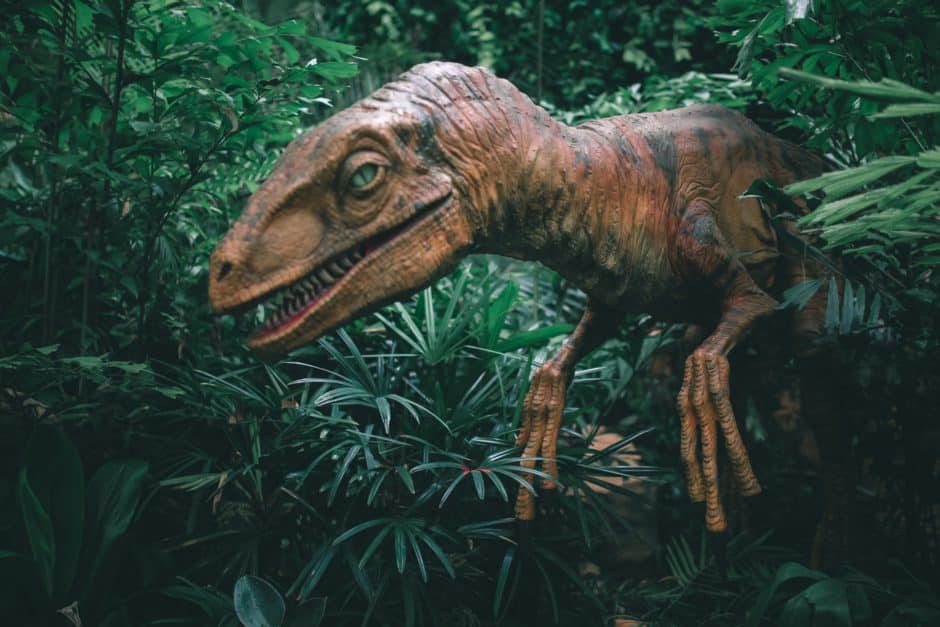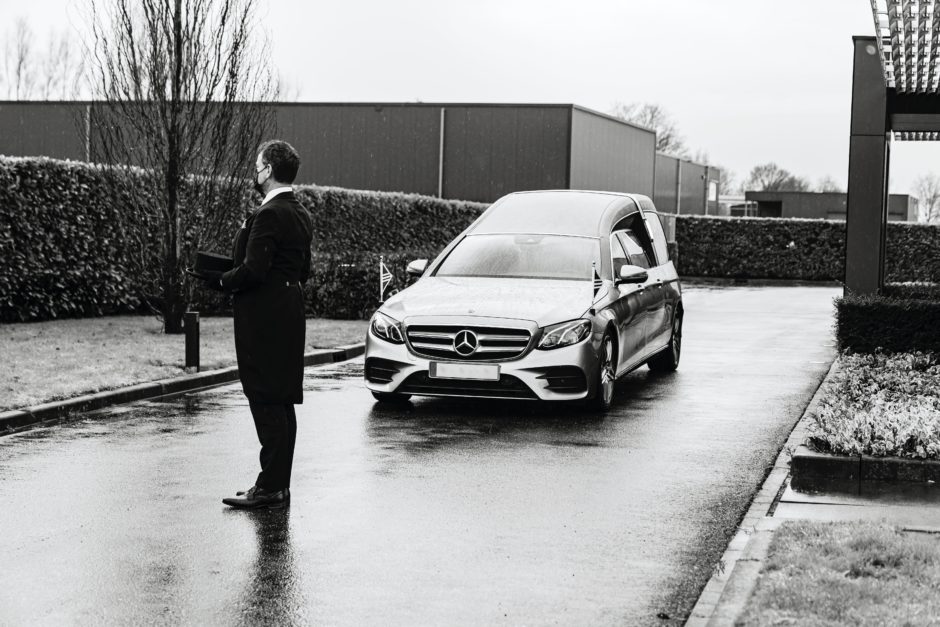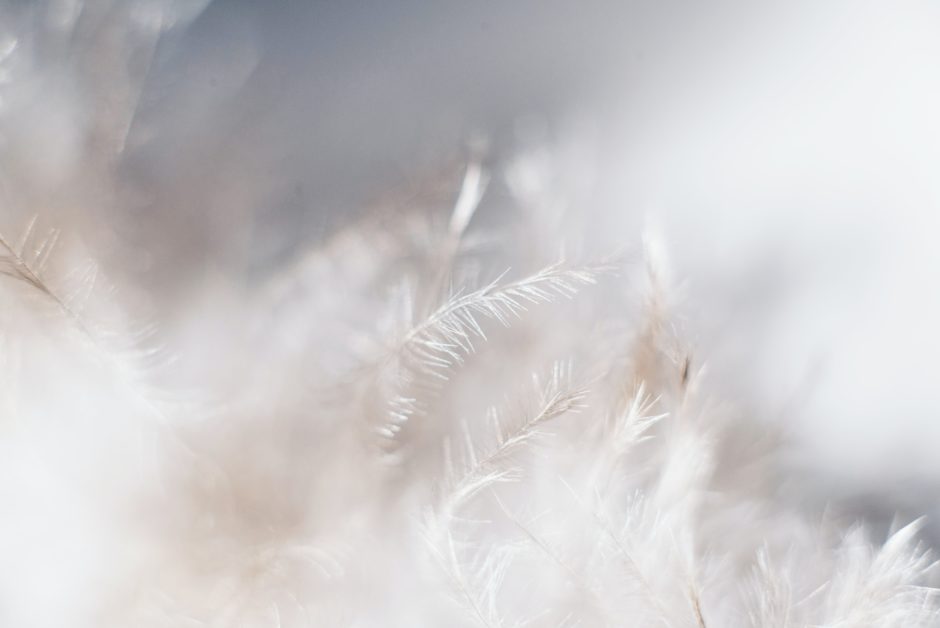By W. T. Paterson
The chill in the air settled against the fading blue sky as Porter lugged an ancient wooden storm panel around the side of the house. The cold sand shifted under his boots turning each step into an arthritic nightmare for his knees. It felt like the end of an era. The summer house that once teemed with life now sat empty and cold leaving only the rat-a-tat knocking of a pesky woodpecker that wreaked yearly havoc on the panels. Buddy, his son, had always helped with the end-of-season board-up, specifically shooing away the bird, but the boy had moved to the big city for a fancy hospital job and Porter was lucky if he got a phone call every other month. Minnie, his wife, took over their Massachusetts house after her therapist suggested a trial separation now that Buddy had grown. Minnie agreed before Porter could weigh in and all but exiled him to his family’s seaside cottage in Maine for the winter. A quarter-century worth of marriage dissolved like a cruel magic trick. One moment things were fine, and the next the veil lifted to reveal the great absence of a used-to-be.
The wooden panel slid into the de-screened slot and hooked into place with rusted latches. Porter rested his sore shoulders and aching back and looked out across the empty beach. The calm ocean barely rippled, more lake than tidal beast roaring with surf. With the summer crowds gone, the small town barely stirred. A part of him believed that being holed up in the place for the winter would bring some clarity to the situation, that the isolation would do him good until the rat-a-tat started up again.
Porter wiped his brow and then slapped the boards. The thick panels shook, and the knocking ceased.
He stepped outside and around the house toward the bulkhead for the final panels, and that’s when he saw it; the creature hiding near the cement foundation of his neighbor’s place. A baby dinosaur, a dilophosaurus by the looks and no bigger than a housecat, watched with cautious curiosity. Its yellow skin with red-striped belly sniffed the air through a long, ridged snout. The creature gave Porter a weak warning growl to reveal a curved row of small, jagged teeth.
“Monsters,” Porter said under his breath, and shook his head at the wealthy summer goers like the Hartwells who loved to buy exotic pets in the spring only to decide they didn’t want them come fall. Instead of heading to proper shelters, they stuck the creatures outside to fend for themselves and left town without so much as a second thought. One year, animal control wrangled a Chupacabra after reports of missing cats piled up, and a few years later, the carcass of a tiger was found in the snowy dunes frozen and starved. Finding the small dinosaur was, unfortunately, par for the course.
Porter closed the rusty bulkhead and went inside even though he wasn’t finished. He held his fingers under warm water to melt the stiffness in the joints and considered phoning the town. From the kitchen window, he watched the dinosaur sniff around and make chirping noises, neck craned and eyes large as the shadows of the houses stretched over the dunes and onto the empty beach.
*
The dark autumn sky swallowed the day. No one at the town hall had answered when he called, so Porter left a voicemail requesting that someone collect the dino. Poor thing won’t survive the cold, he said. It’s their blood. They need the heat. Porter wasn’t sure how he knew this, but he knew it to be true. Leftover details from his childhood fascination with predators perhaps, or something pulled from Buddy’s picture book filled with sharks and crocodiles and yetis and wolves.
That book was still upstairs, he was almost certain. They read it together every summer until Minnie complained that Buddy should turn his interests toward more sophisticated prose and came home with books about the anatomy, and physiology, and medicine. She tucked the book out of reach where it collected dust and rendered the sturdy pages fragile.
What an odd thing to remember at a time like this, Porter thought as he sat on the well-worn and sun-beaten couch. The muted television glowed with his favorite trivia show as static crackled across the screen. He waited for the phone to ring. He watched in quiet until the contestants shouted with glee as a big-money gamble paid off huge. They danced and twirled and pumped their hands up and down like they had just gotten married, like they had a few glasses of fine wine and a belly full of prime rib and sauntered to the dancefloor still believing the person they married was who they believed they were, that an office job wasn’t built to turn a man inside out, that unconditional love could actually heal a person, that paying hand-over-fist for a future that benefited everyone but themselves was a noble path. “Dreamers,” Porter said, and tried to will himself into a nap. That type of happiness made him uncomfortable. It was exhausting, a game for the young. It was why those trivia shows never cast anyone over thirty, because anyone older knew the that the world was a limited path with nothing but forced naps that wouldn’t come in a cold and empty house inside of a town that only lived for a single season.
When the evening news came on and the weather forecasted only cold days ahead, Porter went into the kitchen to scrounge up some dinner. In a cupboard was an unopened box of Rainb-O’s cereal, buddy’s favorite. He purchased a new box every year in the hopes that his son would visit and they could both share a bowl like the old days. He didn’t want to open the box, just in case.
In the back of the freezer, he found two steaks so frozen and frostbitten that they could hammer a nail. He took one out and ran it under the faucet resigning to finish installing the panels in the morning. Over the hiss of the tap, he could faintly make out the lonely wail of the baby dinosaur somewhere outside.
“Poor thing,” Porter said, and against his better judgement, filled an unused bamboo salad bowl with water and walked outside. At the base of the front steps, he put the bowl on the ground and whistled for the creature. The long, gravel driveway wound around sleepy dune grass, cut through overgrown lawn grass, and intersected with a paved road lined with tall pines. The neighboring houses stood like vacated caverns. Crickets pulsed in the chilly air like the slow breath of a sleeping giant. A moment later at the edge of the shadow, the dilophosaurus poked it’s head out from a patch of cratered dunes and sniffed the air. Porter clicked his tongue and pointed at the water. The small creature took hesitant steps and growled a curious growl.
“Atta boy,” Porter said, and watched the creature approach. “Don’t get used to it, though. Done enough charity for this lifetime.”
The idea turned him sour. Why did he always have to do things for the benefit of others? Why was it his responsibility to fix things? There was that time at the restaurant where Minnie had a little too much and started in.
“We should call and check on Buddy,” she said.
“He’s an adult, Min, he’s fine,” Porter said, feeling the night balance on the edge of Minnie’s fragile mood.
“People can be adults and still drown in the bathtub, Porter,” Minnie said, cupping the wine glass with such ferocity that it was a miracle the thing didn’t shatter.
“Ok. We can go,” Porter whispered, and put on his winter coat. He tossed an extra-large cash tip onto the table in an unspoken attempt to smooth things over with their server – a college girl with large eyes and full lips.
“He thinks money will buy you,” Minnie said, stumbling through the slurred words as the server picked empty plates from the table. “But he’s not your type, is he?”
The server went flush and smiled politely, and something about the reaction made Minnie go ice age. She didn’t talk to him for the rest of the night.
In the morning, she knew she had done something, but couldn’t remember what.
“Jog my memory,” she pleaded, rubbing her head. “You’re upset, and I can’t change if I can’t remember.”
“Said some things is all,” Porter mumbled, and twisted the gold wedding band around his finger to let the feeling go extinct.
A chill ran Porter’s spine, so he turned suddenly to go back inside. It startled the dinosaur and the creature reared back on its small hind legs. A scaley umbrella-like mane shot out from the sides of its head. It rattled like a snake, an unmistakable warning.
“Oh please,” Porter laughed. “Been married for nearly three decades. Know what that does to a man? Teeth don’t scare me, pal.”
He chuckled his way up the cold and creaking steps and closed the door inside. As he turned the porch light off, he watched through the glass as the small dinosaur retracted its mane, approached the bowl with curious eyes, and gulped down the water.
That salad bowl was a wedding gift, Porter thought. What an odd thing to remember at a time like this.
*
Just past sunrise, the rat-a-tat returned—a crude wooden alarm to usher in the rising coastal sun. Porter pulled the thinning comforter over his eyes and tried to ignore piercing rap, but the tapping pushed awake-ness through his eyelids like the slow drip of a hangover. His bones ached, the fossilized remains of a great used-to-be. Once a man so sturdy he could board up the home by himself breaking a sweat, he now struggled to sit upright in bed. All those years in an office behind a desk staring into sheets and memos and computer screens left little behind, and what remained had eroded into sun damaged skin and liver spots.
Rat-a-tat. Rat-a-tat. Rat-a-tat.
Porter slid out of bed still in jeans from the day before and shoved his wool-socked feet into tired work boots.
“I’m up,” he grunted, and wiped the last bit of sleep from his eyes. He put on the same flannel as yesterday and walked downstairs. The bones of the quiet home creaked with every thumping step, the arthritic walls wailing and moaning too. With day old coffee sitting cold in the cloudy glass pot, Porter poured the thick mass into a mug and tossed it into the microwave. A single spotted banana stared at him from the fruit bowl and he considered the possibility, but instead watched the digital seconds count down until the ding produced a steaming cup of bitter jet-fuel. After one sip, he knew it had turned but he finished the mug as to not be wasteful before heading outside to finish the job.
A familiar dull pain pulled at the muscles between Porter’s shoulders as he lugged another wooden panel from the bulkhead to the side of the house. Two more, and then he could shelter without worry of those winter storms.
Rat-a-tat. Rat-a-tat.
Porter shoved the panel into the sand below an open slot and huffed. He wanted to confront that damn bird, the constant pecking and relentless picking, but what good would that do anyone? No matter what he felt, the bird always came back and the rat-a-tat became a wooden, mocking laughter. At least with Buddy around, the boy could chase the bird through the cool and crunching dunes until he got tired, or bored, wanted to help with the panels. But Minnie always came outside demanding that Porter do something about the incessant, belligerent, ridiculous racket.
“It’s fine, Minnie,” Porter would say.
“Some people come here to relax. Some people need quiet reflection,” she’d say, and flap back inside chirping about how she married the only man in the world who couldn’t stand up to a bird. Buddy would watch from the dunes with large, confused eyes until Porter explained that it would have been Uncle Marius’s birthday.
“Oh,” the boy would say, and spend the rest of the afternoon quietly chasing birds, and bugs and while his father boarded.
Now, as Porter turned the corner of the boarded-up porch, he saw the small dinosaur crouched in the grass watching the gnawing woodpecker.
“Get!” Porter said and swiped at the bird. The dinosaur tilted its head. The woodpecker did a quick loop in the sky and swooped back onto the sill with an anarchic rat-a-tat. Porter’s blood boiled and his ears went hot.
“I said…” he shouted, and the bird took off again. This time, as it swooped over the dunes, the young dilophosaurus expanded its scaley mane and spit a dark glob of venomous, paralyzing phlegm, which wrapped the bird and brought it crashing out of mid-air. The woodpecker landed lifelessly in the nearby sand. The baby creature trotted over and ate the remains with big, proud bites and then looked at Porter with glistening, hopeful eyes.
“Not bad, little buddy,” he said, and though he couldn’t be sure, it looked like the creature smiled at the compliment.
For the rest of the morning, the dinosaur walked along the sand and dunes chasing away seagulls, butterflies, and crickets that came too close as Porter fixed the final wooden panels into place.
At lunch, Porter cooked the other remaining steak, but something chewed at his wandering thoughts. The spotted banana eyed him from the fruit bowl, and Porter knew that sometimes cooking for one was really cooking for two. He slapped the steak onto a Corelle plate and popped outside. The dino poked its head out from between long blades of dune grass.
“Eat up, you done good today” he said, and balanced the plate on the bottom step of the stoop. The creature sniffed the air, eyed Porter, and scampered out to devour the cooked meat. Porter peeled the yellow banana back and ate the sweet fruit—though he didn’t enjoy it—happy to be able to lend his talents to an appreciative crowd.
“If I let you in, you gonna be good?” Porter asked. The dinosaur looked up and continued chewing. “You gonna be good? If you come inside? You’ll be a good boy?” The creature pondered the question like it understood, and finally chirped as it stepped toward Porter’s knee. He gave it a gentle head-butt. Porter reached down and rubbed the top of the scaley head with his tired, heavy hands. “You’re a good boy.”
The baby dinosaur leaned back and sneezed. A tiny fleck of black, venomous phlegm landed on Porter’s knuckle and burned the skin with a terribly, fiery pain.
“Sweet mother of mercy,” he said, rubbing his fist on his jeans. The creature shrank with alarm when it realized what it had done, eyes wide with a different kind of hurt. “Ain’t your fault, boy,” Porter said. “It’s just how you are.” He stood to walk inside, and then whistled. The dilophosaurus perked up and followed, trotting next to Porter’s knees but never crossing in front.
*
Porter started to suspect that something was different that evening. Not wrong, but different. The dinosaur took a wheezing nap against the electric baseboard heater of the thin-walled coastal home. Upon awaking, he watched Porter as though trying to communicate something.
“You hungry?” Porter asked, and the sound of his voice seemed to put the creature at ease. The young dinosaur rolled to his feet and tip-toed over to the couch and placed his scaley and unusually heavy chin on the top of Porter’s thigh. Porter smiled and rubbed the creature’s rough and uneven head. He noted the retracted mane on the neck like wrinkled skin and wondered at nature’s design. The dilophosaurs relaxed into comfort, but the type of comfort that stems from concern and, he wasn’t sure how, but Porter could sense it like a light left on in a room he was no longer using.
When he moved his leg, the creature stepped back and followed him into the kitchen where the man pan-fried a chicken breast and put it in a ceramic cereal bowl – the big one that Buddy always filled to the brim with colorful Rainb-O’s but could never finish, until the year that Minnie insisted he switch over to something more nutritious like sausage and hash browns.
“A growing boy needs protein,” she said. “You keep giving him this, he’ll stay small forever, and be fragile, and his bones will be weak.”
“Ok,” Porter said like a deflating balloon, because every fight with Minnie was an unwinnable task. She fought with the fury and guilt over her wheelchair-bound brother Marius who drowned in the tub as a teen while she took a brief nap. What could he say to curb venom like that? Nothing, and Porter absorbed every last bit until there was nothing left.
The creature chomped at the chicken breast and pulled it apart with a ravenous hunger until everything was gone.
“You’ve got some appetite, lil’ buddy,” Porter said, and opened the cupboards to try and find something else to feed it. All that remained was the unopened box of Rainb-O’s. He rattled the cardboard and the dinosaur tilted its head. Porter popped the top and poured into the ceramic bowl. The creature sniffed the sugary O’s, looked at Porter, and then slowly lapped up the bits with his dark tongue. It only made it halfway through before walking away from the bowl, back into the living room, and pushed himself against the heater.
“How about a bedtime story before the sun goes down?” Porter asked, watching the young dino give in to heavy eyelids and long, strained breath. He knew just the book, it had to be here still.
Upstairs in the closet tucked in the very back of a shelf was the picture book of predators, the thick and sticky pages the same as they ever were. He remembered nights going through the pictures watching his son’s wide-eyed wonder at sharks, and coyotes, and lycans, and felt the venomous sting of a used-to-be erode the sides of his heart.
Downstairs, he sat on the couch and whistled for the dinosaur. The creature lifted its head and walked with a sleepy limp over to Porter, who opened the picture book and read aloud the simple prose. With each picture he pointed to, the creature seemed to smile and drift further into the clutches of sleep, seemingly happy to hear the man’s voice.
*
Porter’s worry began to peak. The creature asleep at his feet sounded like it was having more trouble breathing, and it kept twitching with miniature seizures. He didn’t know if this was natural, or a cause for alarm, so he pulled the phone from his pocket and wondered if his son might take a call in the big city. Wondering things such things made him feel insignificant, burdensome, left behind.
“Hey Pops!” a voice answered, which startled Porter. He hadn’t been aware that he even dialed, and it sounded like his son was at a restaurant, or a bar, or out with friends being social.
“Hey Buddy, it’s your father,” Porter said.
“I know. Call ID. What’s up?”
Porter wasn’t sure where to start, or how to even ask. Stuttering through ideas, he blurted out the only thing that sounded plausible.
“What do you think about having a dinosaur as a pet?” he asked, and then held his breath for the reply.
“Nah, you don’t want a dino. They have to have their own feeding space because they need to eat live meals. Birds, goats, sheep. Lot’s of blood and entrails, pretty heavy cleanup. Only raw food. Their micro-gut biomes are so strong that cooked food doesn’t get transferred into nutrients and they’ll starve to death. No people food. It makes’em sick, like dogs and chocolate. A lot of work, too much work, Pops. Why? You, uh, you doing ok?”
“Oh yes, yes. Just daydreaming is all,” Porter said. Dread rose from his chest into his throat as the creature kicked out again, writhing in some sort of pain. Porter did what he could to mask the anxiety. “How did you get so smart, anyways?”
“Years of mom forcing me to read books about how bodies work. Go figure,” Buddy said. “Hey, can I call you back in the morning? The firm just got a grant and we’re out celebrating.”
“Of course, son. Sure thing,” Porter said, and wheezed out a half-hearted, lonely laugh.
He hung up the phone and bent over the creature. The skin didn’t feel right. He wasn’t sure what right should have felt like, but this wasn’t it. Dry, too dry, and far too warm in the head, while the yellow belly with red stripes felt too cool.
“Don’t do this to me,” Porter said. “Please, I’m doing the best I can.”
The creature opened its eyes and chirped, but it was a distant noise. The pupils irised like a dimming bulb.
“I didn’t know any better,” Porter said, taking the head into his arms and cradling. “I did the best I could with what I knew, with what I had! I’ll try harder, please!”
The dinosaur began to shake and froth. Porter couldn’t look away even though the sight physically pained him, this creature in so much helpless, needless pain. Had the little dinosaur been like this all summer? Slowly starving to death?
A rattle began in the creature’s chest, which forced the remaining air from its lungs like a tea kettle coming to boil. Porter physically felt the life inside the dinosaur diminish, and he broke down into tears.
“I could have done better, I wasn’t ready for you, but I’m thankful we had this. Know that I’m thankful we had this,” he said. A small spark of life came to the young dinosaur’s eye and for that brief moment, they saw each other in the cold room. Porter wasn’t sure how he knew, but he knew that dinosaur loved him in their short time together.
And then, as the sun dipped over the horizon, the remaining light turned to darkness, and Porter was alone.
*
Porter barely slept, if he even slept at all. After carrying the creature into the basement and deciding to bury it in the woods later, he couldn’t shake the image of the dinosaur’s last moments and how this all could have been prevented with a little attentiveness and research.
Rat-a-tat. Rat-a-tat. Rat-a-tat.
Porter wasn’t in the mood. Of course another bird had come. Of course.
Then he realized it wasn’t a knocking, but a ringing. His cell phone vibrated against the wooden night table with an incoming call from the town offices.
“Heyo, Porter, it’s Len from City Hall. I didn’t wake you, did I?”
“No,” Porter said, and sat up.
“Anywho, got a call from the Hartwells asking if we’d seen a small dinosaur. Said it escaped as they were packing up last month. I told’em you’d called with a sighting, and they said they’d swing by. Wanted to give warning.”
“Thanks Len,” Porter said.
“Ayuh,” Len said, and ended the call. The morning sun forced its way through the thin drapes with blinding reminders. It didn’t seem fair that days got to start and end.
Porter sat up and put on his flannel, the same as the day before, and noticed a few places where venomous phlegm has burned small holes through the fabric. He ran his thumb over them and felt the immediate, pressing absence of a used-to-be.
Work-boots on, he limped downstairs with cold and tired knees as a shining car with New York plates blasting loud, electronic music pulled up the drive. He saw a young man and woman in their early twenties in the front seat, dark sunglasses pulled over their eyes, hair styled like they had just come from a fashion magazine’s photo shoot.
“You the guy?” the woman asked as she stepped out of the car in high heels.
“Len said you’d seen our dinosaur. Tricky bugger snuck out while we loaded the car.”
“Over those dunes,” Porter said, pointing away from the house. “I was boarding up. Saw’em hiding near the beach.”
“Is he still there?”
Porter shrugged and shoved his aching hands into his pockets. The woman rolled her eyes and whispered to the guy that she couldn’t walk in the sand with heels, and that he should go, and that he better be quick because she wanted to get back to the city by nightfall.
“We have a buyer, you see,” the guy said. “Top dollar.”
Porter didn’t move as the Hartwell boy traipsed into the dunes and whistled, pushing aside long blades of grass to look for any sign of the creature. He walked near the beach, deep into the grass, and then back again before returning to the car.
“Anything?” Porter asked.
“It’s a baby, how far could it have gone?” the woman said, annoyed. She leaned against the car and scrolled through her phone.
“Maybe you should have kept a better eye on it,” Porter said. He took his hands out of his pockets and crossed his arms.
“Excuse me?” the guy said and took off his sunglasses. He stepped into Porter’s personal bubble.
“You left this town two months ago. Never once came back looking. You can’t treat things that way, can’t abandon something just ‘cause you’re bored. You have to love it. You have to try at least and sometimes stand up for yourself, even when it’s hard, and you have to commit to working through tough times. Otherwise, anything that matters goes extinct and everyone ends up alone.”
“It’s just a dinosaur, dude,” the guy said. He held up his hands like he was trying to ward off a charging bull.
“Let’s just go,” the woman said. “We’ll tell Franco it was hit by a car or whatever.”
The woman opened the passenger door and sat down as the guy stomped around to the driver’s side cautiously eyeing Porter. At the end of the road, a familiar car turned into the drive. The car with New York plates turned around and sped out of the gravel drive as the other car—Buddy’s car—pulled in. Buddy parked and stepped out into the slowly warming day. He stood with large shoulders, a yellow and red striped sweater hugging his frame. Though he hadn’t been away in the city for too long, Porter couldn’t believe how much his boy had grown.
“Hey Pops,” Buddy said, holding an overnight bag. “What did those clowns want?”
“Something they shouldn’t have,” Porter said. “What’s the occasion?”
Buddy shrugged.
“Talking to you last night, I dunno, thought you might enjoy some company.”
Porter hugged his boy and welcomed him inside. With the wooden panels up along the porch wall, the inside felt cavernous and dark, but Buddy brought a certain light to the rooms that hadn’t existed in quite some time. They chatted in the kitchen about life in the city, about Porter’s move to the seasonal home, about the split with Minnie and how situations never stopped evolving.
“It’s good to see you, though,” Porter said after a while.
“No way, is that a box of Rainb-O’s? Haven’t had those in years. Don’t tell mum, but…” Buddy said.
“Say no more,” Porter said. He went into the cupboard and pulled out the recently-washed bamboo salad bowl.
“A growing boy needs his nutrition,” Porter said. Buddy sat at the kitchen table like a happy child while Porter popped the top of the cardboard cereal box. He poured the colorful O’s until the bowl had nearly filled and the box had all but emptied, and sat with his son in a warming house as daylight spilled through the cracks of the ancient wooden panels illuminating the presence of an always-will-be.
W. T. Paterson is a three-time Pushcart Prize nominee, holds an MFA in Fiction Writing from the University of New Hampshire, and is a graduate of Second City Chicago. His work has appeared in over 80 publications worldwide including The Saturday Evening Post, The Forge Literary Magazine, The Delhousie Review, Brilliant Flash Fiction, and Fresh Ink. A semi-finalist in the Aura Estra short story contest, his work has also received notable accolades from Lycan Valley, North 2 South Press, and Lumberloft. He spends most nights yelling for his cat to “Get down from there!”
~~~~~~~~~~~~~~~~~~~~~~~~~~~
Anti-racist resources, because silence is not an option
~~~~~~~~~~~~~~~~~~~~~~~~~~~












